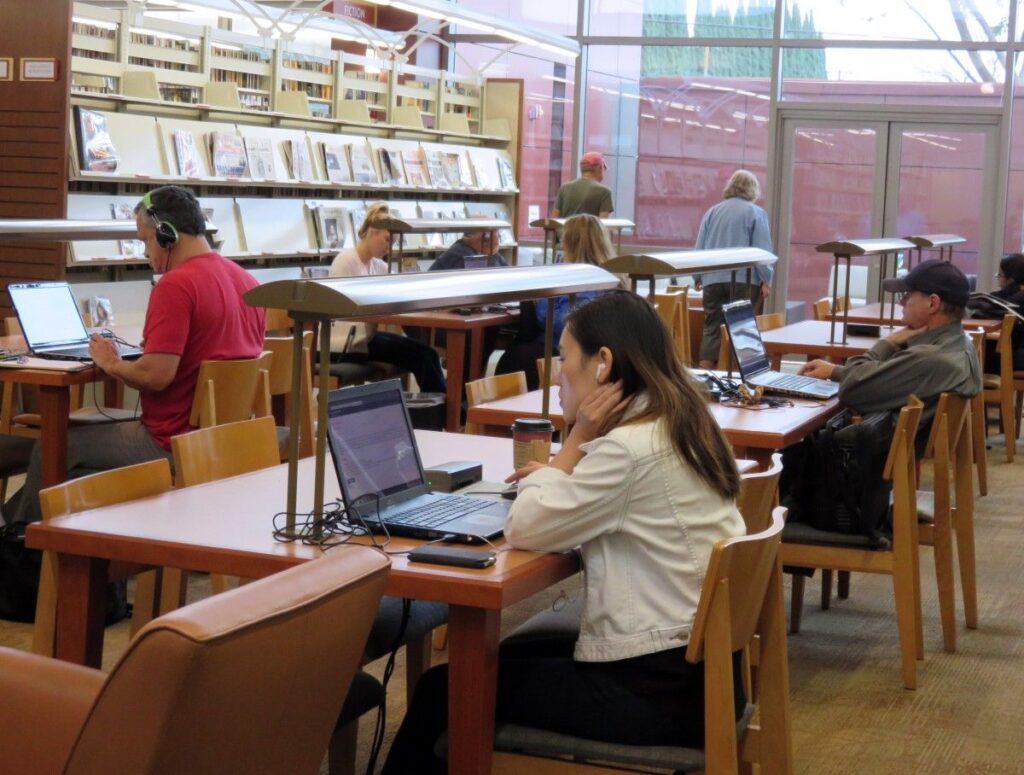The pursuit of academic success often comes with its fair share of stress and anxiety. For many students, the fear of college failure can loom large, disrupting sleep and compounding stress. However, there are effective strategies that can help mitigate these issues, ensuring better sleep even in the face of academic anxiety. This article explores five practical approaches to improve sleep quality and quantity, enabling students to face their academic challenges with renewed energy and focus.
Key Takeaways
- Establishing a consistent sleep hygiene routine can significantly improve sleep quality and reduce anxiety.
- Practicing mindfulness meditation before bed can calm the mind and prepare the body for restful sleep.
- Cognitive Behavioral Therapy (CBT) can address underlying thought patterns that contribute to sleep disruption.
- Incorporating regular exercise into one’s routine promotes physical fatigue and can facilitate deeper sleep.
- A balanced diet, rich in nutrients, supports overall health and can positively affect sleep patterns.
HOW I SLEEP AT NIGHT KNOWING L’M FAILING ALL MY CL – TYMOFF
Establishing a consistent sleep hygiene routine is crucial for managing academic anxiety and ensuring restorative sleep. Developing a pre-sleep ritual can signal your body that it’s time to wind down and prepare for rest. Here are some effective strategies:
- Maintain a regular sleep schedule by going to bed and waking up at the same time every day, even on weekends.
- Create a sleep-conducive environment: keep your bedroom dark, quiet, and cool.
- Limit exposure to screens at least an hour before bedtime to reduce blue light interference with sleep hormones.
Remember, sleep hygiene is not just about the environment or timing; it’s also about preparing your mind for a peaceful night’s rest. Engaging in relaxing activities such as reading or taking a warm bath can greatly enhance your sleep quality.
Avoiding stimulants like caffeine and nicotine close to bedtime is also essential, as they can disrupt your sleep cycle. By prioritizing sleep hygiene, you can improve both your sleep quality and your resilience to academic stress.
MINDFULNESS MEDITATION

Incorporating mindfulness meditation into your nightly routine can be a powerful tool to combat academic anxiety and improve how i sleep at night knowing l’m failing all my cl – tymoff quality. This practice involves focusing on the present moment and acknowledging thoughts and feelings without judgment. It’s a way to quiet the mind and prepare the body for rest.
To get started with mindfulness meditation, follow these simple steps:
- Find a quiet, comfortable space where you won’t be disturbed.
- Sit or lie down in a comfortable position.
- Close your eyes and take deep, slow breaths.
- Observe your thoughts and sensations without engaging with them.
- Gently guide your focus back to your breath whenever your mind wanders.
Remember, the goal is not to clear your mind completely but to become more aware of your mental state. This awareness can help you unwind and detach from the day’s stressors, making it easier to fall a how i sleep at night knowing l’m failing all my cl – tymoff. The Sleep Foundation suggests that those interested in trying meditation for how i sleep at night knowing l’m failing all my cl – tymoff should learn about the science behind this technique and how it can be used to relieve stress at bedtime.
COGNITIVE BEHAVIORAL THERAPY

Cognitive Behavioral Therapy (CBT) is a form of psychological treatment that has been demonstrated to be effective for a range of problems including insomnia, which can be exacerbated by academic anxiety. CBT aims to address the negative thought patterns and beliefs that contribute to sleeplessness.
One specific type of CBT, known as Cognitive Behavioral Therapy for Insomnia (CBT-I), is particularly tailored to help individuals develop healthy sleep habits. CBT-I focuses on restructuring the thoughts, feelings, and behaviors that are contributing to insomnia. Techniques such as stimulus control and sleep restriction are employed to break the cycle of how i sleep at night knowing l’m failing all my cl – tymoff anxiety and improve sleep quality.
It’s important to note that while CBT is a self-help tool, it can be most effective when guided by a trained therapist. Here’s a simple breakdown of the components of CBT-I:
- Sleep Education: Understanding the mechanics of sleep and the factors that influence it.
- Cognitive Restructuring: Identifying and challenging beliefs that contribute to sleep anxiety.
- Sleep Hygiene: Establishing a conducive sleep environment and habits.
- Relaxation Techniques: Learning methods to calm the mind and body.
- Stimulus Control: Associating the bed with sleep only and not with wakeful activities.
- Sleep Restriction: Limiting the time spent in bed to actual how i sleep at night knowing l’m failing all my cl – tymoff time to increase sleep efficiency.
EXERCISE ROUTINE

Incorporating an exercise routine into your daily life can be a powerful tool in combating academic anxiety and improving sleep quality. Regular physical activity is known to reduce stress levels, which in turn can make it easier to fall asleep and stay a how i sleep at night knowing l’m failing all my cl – tymoff throughout the night.
Here are some stress-relieving exercises that can help you feel more relaxed:
- Walking
- Jogging or running
- Yoga
- Pilates
- Body-weight resistance exercise
- Swimming
- HIIT workouts
- Dancing
- Martial arts
Consistency is key when it comes to exercise. Aim to integrate physical activity into your schedule several times a week, and you’ll likely notice improvements in your how i sleep at night knowing l’m failing all my cl – tymoff and overall well-being.
Remember, the goal is not to exhaust yourself but to find a balance that leaves you feeling energized yet calm. Listen to your body and adjust your exercise routine as needed to ensure it’s a source of relief, not additional stress.
NUTRITION AND DIET

The correlation between nutrition and how i sleep at night knowing l’m failing all my cl – tymoff quality cannot be overstated. A balanced diet rich in essential nutrients is crucial for promoting restful sleep. One large study highlighted the importance of certain nutrients; a deficiency in calcium, magnesium, and vitamins A, C, D, E, and K has been associated with how i sleep at night knowing l’m failing all my cl – tymoff disturbances.
To ensure your diet supports your sleep, consider the following tips:
- Include a variety of fruits and vegetables to get a broad spectrum of vitamins and minerals.
- Incorporate sources of lean protein to help regulate how i sleep at night knowing l’m failing all my cl – tymoff cycles.
- Limit caffeine and sugar intake, especially in the hours leading up to bedtime.
Maintaining a consistent eating schedule can also play a significant role in how i sleep at night knowing l’m failing all my cl – tymoff quality. Eating meals at regular times helps regulate the body’s internal clock, contributing to better how i sleep at night knowing l’m failing all my cl – tymoff patterns.
Remember, while diet alone may not cure academic anxiety, it can certainly help in managing stress and improving how i sleep at night knowing l’m failing all my cl – tymoff. Small dietary adjustments can make a significant difference in your overall well-being and academic performance.
CONCLUSION
In conclusion, managing sleep while grappling with academic anxiety and the fear of college failure is a significant challenge that many students face. However, by implementing the five strategies discussed in this article, you can create a more conducive environment for restful sleep. Remember, it’s about establishing a consistent sleep routine, creating a calming pre-sleep ritual, engaging in regular physical activity, seeking professional help when needed, and maintaining a balanced perspective on academic performance. Sleep is a critical component of your overall health and academic success, so take proactive steps to protect it. As you navigate the pressures of college life, keep in mind that failure is not the end but an opportunity for growth and learning. By prioritizing your well-being and how i sleep at night knowing l’m failing all my cl – tymoff, you’re setting yourself up for a more resilient and fulfilling academic journey.
FREQUENTLY ASKED QUESTIONS
How Can Sleep Hygiene Improve Academic Anxiety?
Sleep hygiene involves creating a consistent how i sleep at night knowing l’m failing all my cl – tymoff schedule and environment that promotes restful sleep, which can reduce stress and anxiety levels, thereby improving academic performance.
What Is Mindfulness Meditation And How Can It Help With College Failure?
Mindfulness meditation is a practice that involves focusing on the present moment and accepting it without judgment. It can help manage stress and anxiety related to academic challenges by fostering a calm and clear mind.
Can Cognitive Behavioral Therapy (CBT) Be Used To Address Academic Anxiety?
Yes, CBT is an effective treatment for anxiety that can help students identify and challenge negative thought patterns and behaviors associated with academic stress, leading to improved coping strategies.
What Type Of Exercise Is Best For Reducing Academic Anxiety?
Any form of physical activity that you enjoy and can consistently engage in is beneficial. Aerobic exercises like running, swimming, or cycling are particularly effective for reducing stress and anxiety.
How Does Nutrition Affect Sleep And Academic Performance?
Proper nutrition can greatly impact sleep quality and energy levels. Eating a balanced diet with an emphasis on whole foods can help maintain stable blood sugar levels, which is crucial for quality how i sleep at night knowing l’m failing all my cl – tymoff and cognitive function.
Are There Any Specific Diets Recommended For Students Dealing With Academic Anxiety?
While there’s no one-size-fits-all diet, it’s recommended to focus on a balanced diet rich in vegetables, fruits, whole grains, lean proteins, and healthy fats. Avoiding excessive caffeine and sugar can also help manage anxiety levels.











